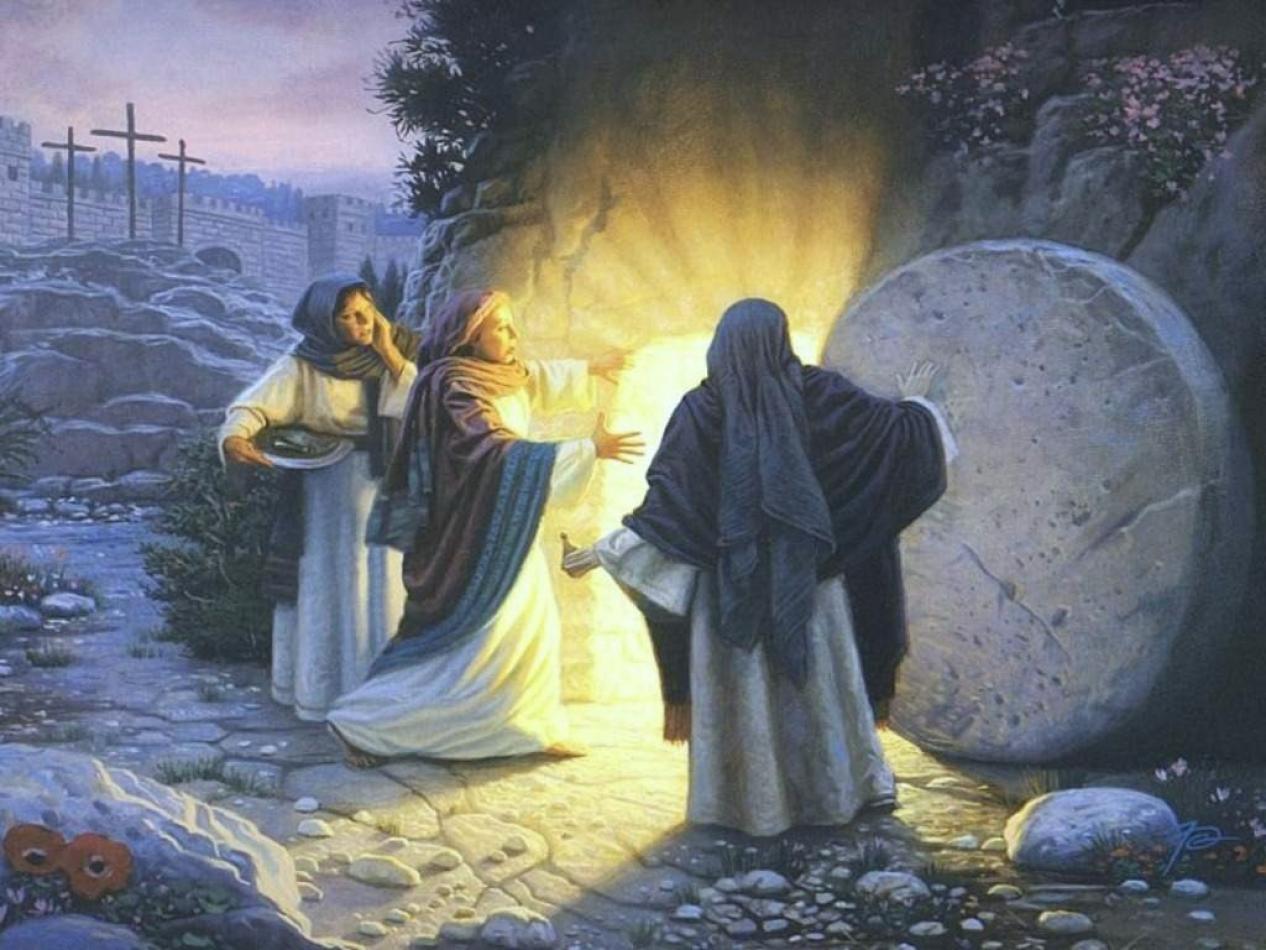Daniel Comboni
Comboni Missionaries
Institutional area
Other links
Newsletter
Peter is not committing a simple mistake. He is moving in the direction opposite to that of the Lord. He is acting just like Satan who tried to convince Jesus to focus on the domain, on the conquest of power. He had led him to a very high mountain and showed him all the kingdoms of the world and their glory, saying, “All this I will give you, if you kneel down and worship me.” But Jesus had decidedly reacted: “Be off, Satan” (Mt 4:8-10). Now the same temptation—advanced by Peter—cannot but be responded with the same hardness.
Matthew 16:21-27
GOSPEL REFLECTION
The Jews of Jesus’ time lived in expectation of a better world, the “century to come,” full of peace and justice. Basing themselves on Ezekiel 49, the rabbis announced for the last days,” a miraculous transformation of the earth. They assured that in the days of the Messiah, Palestine will be transformed into a garden and the gardens will become forests. The soil’s fertility will be multiplied by thousands. There will be abundance for all, and all goods abound, as in the heavenly period of the beginning.
The apostles also cultivated these hopes. They were convinced that the coming of the Kingdom of God was imminent. They have realized that their master was the Christ, the long-awaited “Son of David.” They had followed him to see their dreams of glory realized. The only question which, according to them, was still pending was to determine who would be entitled to the first places (Mk 9:34).
It is in the context of these expectations that the first of the three announcements of the Passion, found in the Gospel, is placed. In the middle of his public life, Jesus is aware of having to decisively correct the convictions of his disciples. He does not want them to follow him lolling in vain illusions. To avoid any ambiguity, he openly declares that he is not walking towards triumph, but he is going to Jerusalem to suffer a lot, to be killed, and be raised again on the third day (v. 21).
The human logic cannot but feel upset in front of such a proposal. The disciples cannot understand because they learned from the scribes that the Messiah cannot die. It was taught to them that, at his coming, the righteous who lie in their graves will rise to take part in the joy of his Kingdom, and Peter, in the name of all reacts (vv. 32-33). He is not afraid of sacrifices. One day he’ll be able to give proof of risking also his life if necessary (Jn 18:10), but he is not willing to commit himself to an absurd project. He does not accept to stand on a road that leads straight to failure. He would like that Jesus also should know it and change his mind.
The scene that follows is very significant and realistic. Peter takes the Master apart, as to cheer him up in a moment of despair. It is as if he makes him understand that, in a moment of confusion, it is understandable that an unfortunate phrase may also escape.
The reaction of Jesus to the attempt to dissuade him from his path is hard, almost irritating: “Get behind me, Satan,” says our text, but the translation is not exact. Jesus does not intend to dismiss Peter, but to put him on the right path. “Get behind me”—he says— “follow my steps, do not try to precede me, as one who claims to lead the way. This is drawn by the Father and you Peter make a proposal that comes from worldly wisdom, from human foolishness that is senseless in God’s eyes.”
Peter is not committing a simple mistake. He is moving in the direction opposite to that of the Lord. He is acting just like Satan who tried to convince Jesus to focus on the domain, on the conquest of power. He had led him to a very high mountain and showed him all the kingdoms of the world and their glory, saying, “All this I will give you, if you kneel down and worship me.” But Jesus had decidedly reacted: “Be off, Satan” (Mt 4:8-10). Now the same temptation—advanced by Peter—cannot but be responded with the same hardness.
The scene described in today’s Gospel forms a diptych with that of last Sunday. Simon had been named by Jesus as the living stone of the Church because he had received the revelation of the Father, had accepted His plan of salvation and had professed his faith in the Son of the living God. Now he becomes a stumbling block because he lets himself be guided by human reasoning, which aims for glory, successes, honors which are obstacles in the path of the Master and his disciples.
After having rebuked Peter, Jesus turns to all (vv. 24-27) and unequivocally puts forward his demands. There is no attempt to mitigate them, to make them more acceptable. If the Master has chosen to give life and if “the disciple is not above the master” (Mt 10:24), the path will have to be the same.
Three imperatives characterize the radicality of a choice that does not admit delays nor second thoughts:“Deny yourself, take up your cross, follow me.”
Deny yourself means you stop thinking about yourself. It is the reversal of the principles in this worldgoverning relations between people. It is the rejection of those that all believe to be positive stimuli because they push to action: the pursuit of one’s own interest, the will to achieve gratification, acknowledgments, and benefits. Even in the purest acts of love, there is often some veiled forms of selfishness and ambition.
The disciple of Christ is called, first of all, to give up any personal gain, even the spiritual one. He does not do good to accumulate merits in heaven, to take a step up in spiritual progress. He acts thinking only about his brother and sister. He does not minimally take into consideration the positive impacts that the good works have on his person. He loves freely, in pure loss, as does the Father.
The second imperative, take up your cross, does not refer to the need to patiently endure the small or big tribulations of life, even less, the exaltation of pain as a means to please God. The Christian does not seek to suffer, but to love.
The cross is the sign of love and of total gift. To carry it after Christ means to follow the way he has trodden to offer one’s life for his same ideals, confront, if necessary, also persecutions and death to remain faithful to the Gospel. “Carry the cross” who sacrifices himself to do good, to make someone happy.
The third imperative, follow me, does not mean “take me as a model,” but share my choice, take part in my project, bet your life on love, together with me.
The concluding verses (vv. 25-27) present three reasons with which Jesus tries to convince his disciple to accept the three difficult conditions he has just put forward.
The first: the one who gives his own life, actually, does not lose, but gains it (v. 25). Who holds tight in their own hands the grain of wheat, who consumes it for himself and hides it, will only dissipate it. The only one who has the courage to lose it, throwing it into the ground, “preserves” it, “recovers” it. It also happens with life: to earn it “one must lose it.” It is necessary to expend it for the brothers and sisters.
The second reason (v. 26): the life of this world passes quickly. It is transient, fragile, and precarious; it is not worth clinging desperately to it as if it were eternal. Here the numerous sapiential reflections on the transience of life ring out: “You allow me to live but a short span; before you, all my years are nothing. Human existence is a mere whiff of breath. Humans are mere shadows that go about relentlessly. Being but a breath they toil and rake in wealth, not knowing who will take it next” (Ps 39:6-7).
The third reason (v. 27): the ultimate reward. The scene of judgment occurs often in the Gospel of Matthew. It is not as a future threat, but as an indication of the wise choices to be done in the present. What can one avail to present to God at the end of life? Certainly not the money accumulated, the pleasures enjoyed, nor awards and career earned. At the end, the Lord will not look at the titles of honor that we will be able to put in front of our name, but the works of love that will follow the name.
When the spotlights that dazzled the scene of this world will be turned off, and when the deceptive glitters of idols that enchanted and seduced many persons are extinguished, then only the light of God will shine and the true value of each person will appear.
READ: You must discern the will of God: what is good, what pleases, what is perfect.
REFLECT: God’s will—what is good, perfect, pleasing. This is our life’s aim. We need to discern it always to hit the mark.
PRAY: We are aware of how we often miss the mark: our sins. Let us aim to do what’s more positive so we would really be praising God.
ACT: Ponder on the difference between being really discerning and merely discriminating.
Fernando Armellini
Italian missionary and biblical scholar
https://sundaycommentaries.wordpress.com





